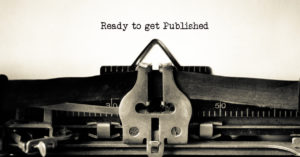 I prefer to ask the question: Why not self-publish?
I prefer to ask the question: Why not self-publish?
What do you have to lose?
You may have heard that if you self-publish, the big publishing houses will snob you. Well, they will snob you anyway.
As always, I can only speak from personal experience. I attempted the traditional publishing route at first. I did my homework and found 34 agents who represented writers in my genre because the publishers won’t talk to writers. They use agents to screen for them. By the way, your agent will take 15 percent of your royalties.
I read countless articles and noted what turned agents off, and made sure not to do any of them. I submitted my work in strict accordance with how each agent specified because if you didn’t, it would mean immediate rejection.
Then I waited.
After a few weeks, rejection form letters began appearing in my email. Not from all the agents. The majority didn’t bother to respond at all.
Then finally, a positive response. An agent wanted my full manuscript. I eagerly sent it off and waited another few months to get a response. He liked the story but was insulted because the editing wasn’t to his liking. He told me about all the writers standing in line to have him as their agent. Good for him.
Every experience is a learning opportunity. What I learned was that traditional publishing appears to be an insider’s game. If you can’t get an agent who knows the game, you’re going nowhere fast. If you’re not writing what the publisher believes will sell, they will not take a chance on you becoming the next Tom Clancy because the odds are you won’t be. It is, for them, purely a business.
What are you missing if you bypass traditional publishing?
If you’re a new writer, not much. If you think traditional publishing puts the marketing on the publisher, think again. They spend their marketing budget on proven winners. You’re an unknown. Their editors will hack your book apart to look like everything else on the market. They will pick your cover, which will look like everything else on the shelf. They will decide the release date and delist your book on their terms, but you might get a small advance which you will need to spend on marketing and then some. Who wouldn’t want that deal? Also, if your sales don’t exceed the advance, you’re done. They will drop you and move on to the next in line.
Self-Publishing Isn’t a Piece of Cake Either.
With freedom comes responsibility. You get to pick your editor, but you pay for it. You get to pick your cover designer, but you pay for it. You can do your own formatting or hire someone. But, all of this is your call. The release date is yours and always faster than a traditional publishing house. Plus, you decide on your book price and which outlets you feel comfortable using.
If you do most of the work, self-publishing is not that expensive. I believe anyone can produce a respectable novel, assuming the writing and editing are good, for under $3,000. The more you can do, the more you save. You’re essentially paying yourself instead of someone else.
The royalties are significantly better. The average is 70 percent on Amazon and Barnes and Noble, but outlets like Payhip are even better. Traditional publishing is in the neighborhood of 10 to 15 percent. Where does all that money go? It’s certainly not going to you.
The Small Independent Publisher
I believe we’re seeing the end of traditional publishing, with the market now down to 5 major players. The smaller independent publishers have made significant inroads into the large firms’ e-book market share and currently almost double (25 compared to 45 percent) that of Amazon. The future does not appear bright for the people who once decided who was worthy of publishing and who wasn’t.
Technology is the key driver with print on demand. No longer do you need to print a warehouse full of books, ship them around the world, and promote a release. A few clicks and your book is scheduled for print and will arrive at your doorstep in a few days.
Final Thoughts
We have committed to self-publishing and have our 14th release out soon. I have the freedom to write the books I want to read. Sure, we want to sell our books, but on our terms, and that’s the way it should be. As a writer, you are an artist who uses the written word to paint a story. I believe in a sacred bond between the writer and the reader, and nothing should get between that. Like the ancient storyteller sitting at the fire as the youth are captivated by the tale of a hero who saves the world, we have an obligation beyond “making money”. I believe the so-called traditional publishing has lost that a long time ago.